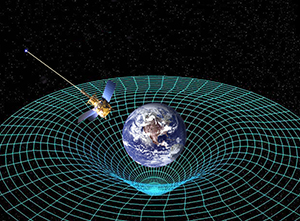
Einstein's General Theory of Relativity is one of the most cherished fundamental theories of physics. But this description of gravity is widely expected to be incomplete because of its lack of a quantum foundation. The electromagnetic, weak, and strong forces, by contrast, are well defined by quantum mechanics. Most tests of General Relativity have been done in low gravitational fields, e.g., within the Solar System. Among the most stringent tests to date are the binary pulsar observations where the effects of gravitational radiation are important. However, the best tests would be in the most extreme conditions, near the event horizons of black holes, and where black holes are interacting at close range, particularly where velocities are an appreciable fraction of the speed of light. General Relativity makes specific predictions about how the light emitted from material in the inner-most regions around a black hole is distorted and gravitationally redshifted. Detailed observations of that light will provide stringent tests of strong gravity. General relativity also predicts that the inspiral of two massive objects will perturb spacetime and generate gravitational waves. The most extreme conditions and hence the strongest gravitational wave signals exist during the merger of massive black holes. Studying gravity in these strong field limits will provide essential tests of General Relativity and the nature of spacetime.